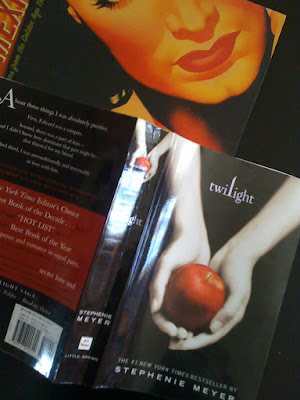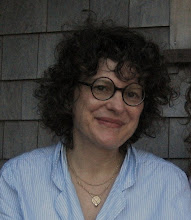Stitches by David Small is a graphic memoir. David Small grew up in a rather awful household with an angry mother and father with very little love. I am so over the graphic novel thing and the memoir thing that I imagined the two together would be the kiss of death however I am astonished to say I actually liked it.
Let me preface this by saying that it takes less than an hour to read and I did not fork over $24.99 to read it, I borrowed it from the library. The kind of resentment that slowly builds in your heart after they take your $24 and then make you read their whining for days and days on end did not happen.
The book is simple enough...in the 1950's a small sensitive boy with a cold unpleasant secretive family develops cancer from radiation treatments his father gives him to cure asthma. The story and drawings move together in and out of the boy's dreams and reality. There were a few moments in it when my eyes actually welled up with tears.
Unlike other (most) graphic novels the drawings actually told a story where I think words wouldn't have worked as well. Especially in dreams----no one can write a dream---dreams are visual, they're images---not words on a page--in childhood the two are so much closer together and harder to tell apart. In the dream sequences of the book the text and the pictures run together in a way that captures that feeling very effectively. In a scene where the sullen boy first cries with his therapist, Small expresses what those tears mean through some very simple but powerful drawings, words would have belittled the emotion and weight of the scene.
Let me preface this by saying that it takes less than an hour to read and I did not fork over $24.99 to read it, I borrowed it from the library. The kind of resentment that slowly builds in your heart after they take your $24 and then make you read their whining for days and days on end did not happen.
The book is simple enough...in the 1950's a small sensitive boy with a cold unpleasant secretive family develops cancer from radiation treatments his father gives him to cure asthma. The story and drawings move together in and out of the boy's dreams and reality. There were a few moments in it when my eyes actually welled up with tears.
Unlike other (most) graphic novels the drawings actually told a story where I think words wouldn't have worked as well. Especially in dreams----no one can write a dream---dreams are visual, they're images---not words on a page--in childhood the two are so much closer together and harder to tell apart. In the dream sequences of the book the text and the pictures run together in a way that captures that feeling very effectively. In a scene where the sullen boy first cries with his therapist, Small expresses what those tears mean through some very simple but powerful drawings, words would have belittled the emotion and weight of the scene.
So in the end if there must be graphic novels and memoirs, and the inevitable fusion of the two---as I'm afraid there must---this was a pretty good one.








.JPG)







































